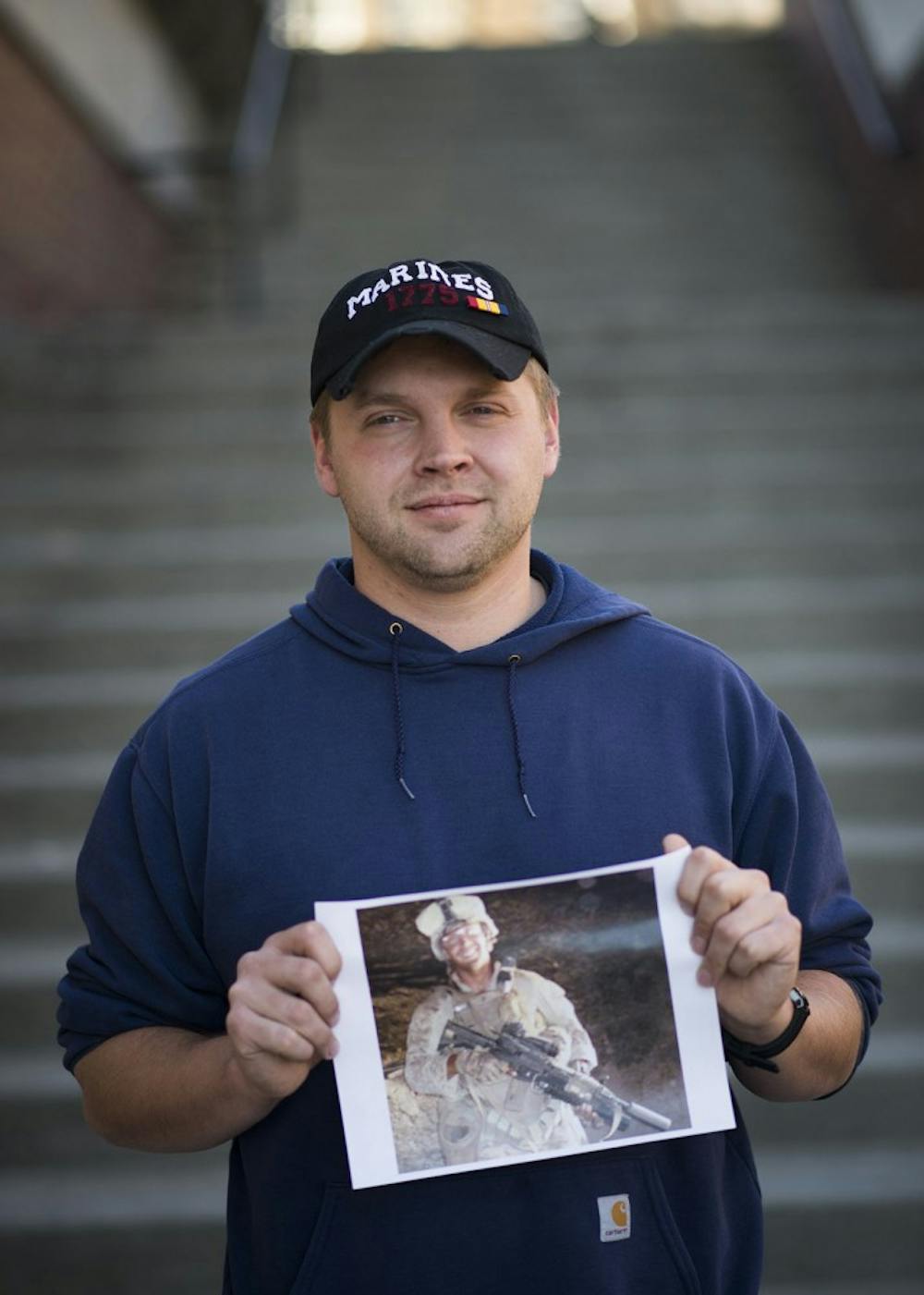American Sniper caused controversy over its portrayal of the Iraq War but veterans and members of military families say they related to the film.
Chris O’Connell saw Clint Eastwood’s American Sniper with a few friends, but he said they didn’t share the same movie-going experience.
“I think they saw it as just a movie, you know. That’s all it was to them — just a really sad story,” O’Connell, a sophomore studying mechanical engineering, said. “Me, I’m over here thinking wow that’s a really sad story, and that could happen to me. That could happen to my friends. I could be there. I’m kind of scared.”
O’Connell is a private first class in the Army National Guard.
American Sniper is nominated for six Academy Awards, including Best Picture and Best Actor for its star Bradley Cooper. The film is based on the story of Chris Kyle, a U.S. Navy SEAL who had the highest confirmed kill count in U.S. military history. The film is adapted from Kyle’s autobiography of the same name.
However, the film has made headlines for reasons other than its award season buzz. It became political. Controversies stirred over the film’s depiction of Kyle and the Iraq War.
David Edwards, the director of the Veterans and Military Student Services Center, said to remember the film isn’t an all-encompassing look at the military and that Hollywood tends to glamorize exceptional situations.
“That is one person’s view of what he signed up to do and what the government asked him to do,” Edwards, a now-retired veteran, who last served as the superintendent of a communications squadron in the Air Force, said.
Adam Hanson, president of the Ohio University Combat Veterans Club, said Kyle’s story is “much more intense” than his or other veterans’, but there is a good parallel of having to go to war.
Hanson served for four years in the Marine Corps. His final position was as a combat engineer team leader. He completed three deployments: one to Iraq and two to Afghanistan, which he only described as being like a “chess game.”
He pointed to the opening scene of the film in which Cooper’s character debates whether to shoot a child who seems to be a threat to his troop.
“Sacrifice your comrades’ lives or shoot the child? There’s no good answer in that,” Hanson, a junior studying nursing, said. “Unfortunately, war is terrible and you can’t always control everything.”
O’Connell, who is still in active service, agrees with Eastwood’s and Cooper’s remarks that the film is meant to portray the tolls war takes on soldiers. He added American Sniper is a fairly accurate representation of the military largely because of how much it showed Kyle caring for his fellow soldiers.
The film also accurately depicts the relationship between a solider and his family back home, said Alissa Heffner, a junior studying integrated media.
Heffner’s father Jon is a lieutenant colonel in the Army and has been in the military since before she was born. She recalled the many birthdays and life events her father missed because of his job. It was something, she said, she just got used to.
{{tncms-asset app="editorial" id="6738b093-a1a3-50d3-a324-215f0fec3c35"}}
“When you’re young, you don’t really understand,” she said. “Dad is gone. He’s back. That’s life.”
However, Heffner said she didn’t watch American Sniper from the point-of-view of a child of a veteran. She watched it from a spouse’s perspective.
Heffner is engaged to Alex Lopez, a member of the Army Reserves who lives in Virginia.
“I was imagining my fiancé could be doing that in the near future,” she said. “I could be pregnant on the phone listening to gunshots.”
Hanson’s own experience parallels, to some degree, that of Kyle’s after he ended his active service.
“Everything seemed surreal when I got back the last time — just waiting to wake up and still be in Afghanistan sometimes,” he said.
He added when he first got back, he struggled with suppressing his combat instincts and some anger issues.
Now, Hanson said he still can’t believe he’s in nursing school and that his struggles with returning from the military have lessened after his coursework got harder.
“I’ve started doing clinicals,” he said. “Now, I’m actually helping people.”
@buzzlightmeryl
mg986611@ohio.edu






